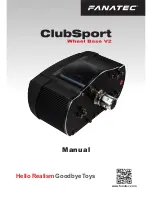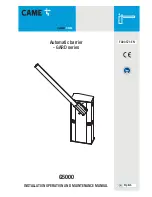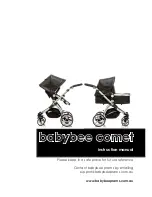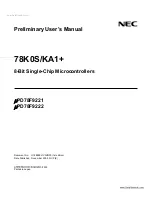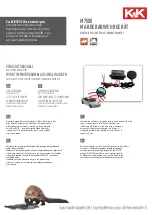
23
TriStar MPPT Operator’s Manual
Step 7 - Battery Voltage Sense
The voltage at the battery connection on the TriStar MPPT may differ slightly from the voltage di-
rectly at the battery bank terminals due to connection and cable resistance. The
Battery Voltage
Sense
connection enables the TriStar MPPT to measure the battery terminal voltage precisely
with small gauge wires that carry very little current, and thus have no voltage drop. Both battery
voltage sense wires are connected to the TriStar at the 2-position terminal located between the
pushbutton and the positive (+) terminal lug (see
fi
gure 2-1).
A battery voltage sense connection is not required to operate your TriStar MPPT controller, but it
is recommended for best performance. If a TriStar meter will be added to the controller, the bat-
tery voltage sense will ensure that the voltage and diagnostic displays are very accurate.
The voltage sense wires should be cut to length as required to connect the battery to the voltage
sense terminal. The wire size can range from 16 to 24 AWG (1.0 to 0.25 mm
2
). A twisted pair
cable is recommended but not required. Use UL rated 300 Volt conductors. The voltage sense
wires may be pulled through conduit with the power conductors. Tighten the connector screws to
5 in-lb (0.56 Nm) of torque.
The maximum length allowed for each battery voltage sense wire is 98 ft (30 m).
Be careful to connect the battery positive (+) terminal to the voltage sense positive (+) terminal.
No damage will occur if the polarity is reversed, but the controller cannot read a reversed sense
voltage. Connecting the voltage sense wires to the RTS terminal will cause an alarm.
If a TriStar meter is installed, check the “TriStar Settings” to con
fi
rm the Voltage Sense and the
RTS (if installed) are both present and detected by the controller. MSView
TM
PC software can
also be used to con
fi
rm the voltage sense is working correctly.
Step 8 - Network Connections
Network connections allow the TriStar MPPT to communicate with other controller or computers.
A network can be as simple as one controller and one PC, or as complex as dozens of control-
lers monitored via the internet. Review section 5.0 for more information about networking and the
connection(s) required for your system.
WARNING: Shock Hazard
Never route network cables in the same conduit as the power conductors.
WARNING: Shock Hazard
Only use 300 Volt UL rated communication cable.
AVERTISSEMENT : Risque de décharge électrique
N’acheminez jamais les câbles réseau dans le même conduit que les conducteurs
d’alimentation.































